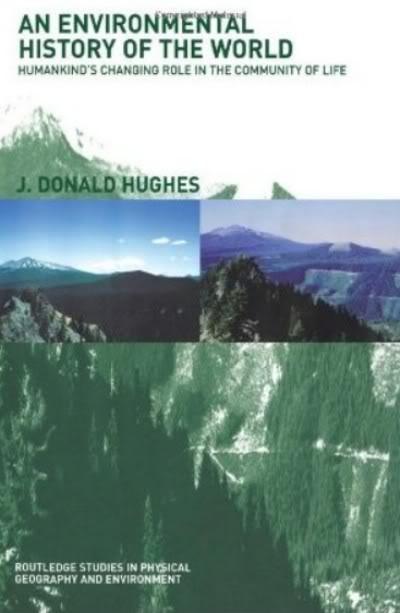Hughes, J. Donald. An Environmental History of the World: Humankind’s Changing Role in the Community of Life. New York: Routledge, 2001. Based on his serialized “Ripples in Clio’s Pond” segments in the journal Capitalism Nature Socialism, J. Donald Hughes’s book condenses the environmental history of the world into roughly 250 pages without leaving gaping holes. Hughes sacrifices diverse and detailed minutiae for well-chosen regional examples of world scale changes and a more lyrical style. He begins by introducing the context for his study: “the narrative of world history must have ecological process as a major theme.” In his second chapter, “Primal Harmony,” Hughes describes the early human experience in the Serengeti in Africa, Kakadu in Australia, and the American Southwest, demonstrating human similarities to other animal species in those regions, and humans adapting to and shaping their environments. The third chapter looks at the cultural divorce from nature that coincided with the rise of civilization. The city prompts the conceptual divorce of culture from nature, and Hughes uses the symbolic value of the wall to good effect. Moving from ecological degradation in practice to the mind, Hughes turns to the ancient world to make sense of human perceptions of nature and our general understanding of the cosmos and our place in it. Perhaps the richest chapter is Hughes’s sixth chapter, entitled “The Transformation of the Biosphere,” in which he manages to combine the European age of navigation, which moved plants, animals, and peoples all over the world, the Industrial Revolution, the Age of Imperialism, and the impact of Darwin’s vision of evolution. Hughes covers a lot of ground, but at no time here does one feel as though he has done rough justice to his subject matter. (Text adapted from an H-Net review by Michael Egan.)
An Environmental History of the World: Humankind's Changing Role in the Community of Life
Hughes, J. Donald | from Multimedia Library Collection:
Books & Profiles


